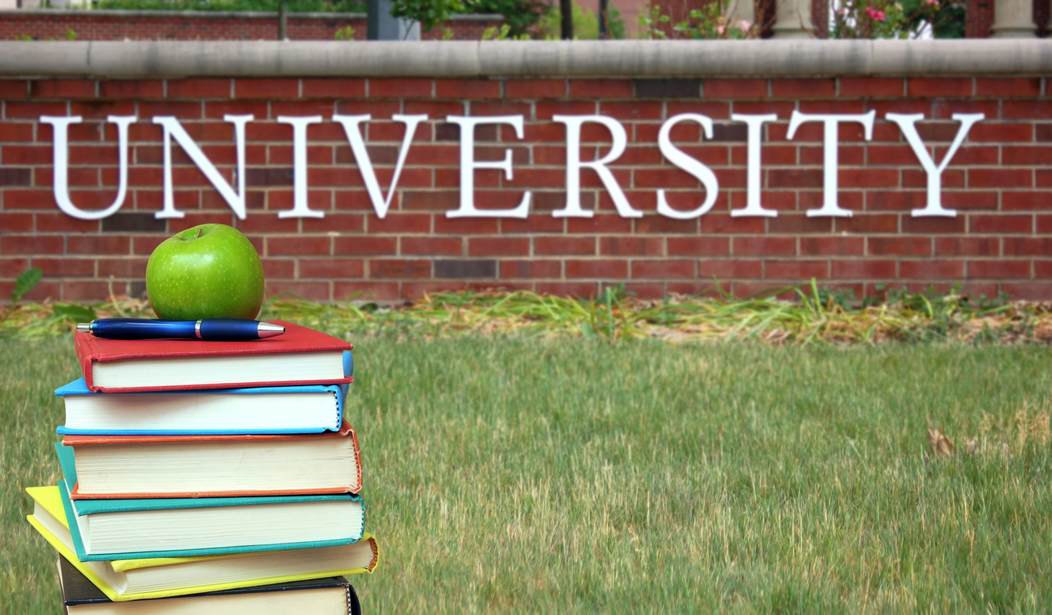Researchers at the University of North Carolina at Chapel Hill have found that conservative students more often self-censor on campus than liberal students. The reason? Not to avoid negative backlash from professors as much as that from other students who don’t share their point of view.
Timothy Ryan, an associate professor of political science, and Mark McNeilly, a professor of marketing, sent a survey to the entire undergraduate student body at UNC-Chapel Hill. They found that conservative students who self-censor outnumber liberals, 68% to 23%.
Ryan and McNeilly note that the students did not respond negatively to maltreatment by professors nearly as much as they reacted to backlash from peers.
As they report:
In contrast, students reported substantially more anxiety about how their own peers would respond to expressing sincere political views — and the divides between liberal and conservative students are larger. Seventy-five percent of conservative students said they were concerned that other students would have a lower opinion of them if they expressed their sincere political views in class. But only 26% of liberal students had this concern.”
They then asked if more liberal or conservative students would carry out tactics to block events that presented alternate views. Guess what?
Nearly 20% of liberal respondents indicated it would be appropriate to prevent other students from hearing a campus speaker express the disliked view. But just 3% or less of moderate and conservative respondents indicated that doing so was appropriate.
This stands to reason, and reflects a trend at other universities. Protesters at Evergreen State College and Reed College made national headlines for harassing professors who, while undeniably liberal, failed to stay woke enough. Bret Weinstein, a former biology professor at Evergreen, faced violent protests by students after he declined to participate in an informal protest in which all white people left campus for a day. He eventually resigned after noting that the campus was “out of control.” At Reed, the Humanities 110 lecture faced months of student protests for supposedly not including enough people of color in its historical review.
It used to be that conservative college students feared negative backlash from their more liberal professors in the form of bad grades and leftward-leaning curriculum. Anymore, students come to college already conditioned to censor their own less-woke worldviews. This indicates that the problem could go much deeper, as secular humanists and social Marxists — after their own collegiate conditioning — have taken over the curriculum in high schools, middle schools, and even elementary schools. There’s a reason intersectionalism is ascendant as an ideology.
That doesn’t mean college curricula escape blame. One of the most prominent examples of millennial progressivism, Alexandria Ocasio-Cortez, holds a Bachelor of Arts in International Relations and Economics seeped in cultural Marxism. Counter to the many headlines touting her degree in economics, it really isn’t an economics degree as much as it is a degree in Third-World nation studies. She’s undeniably intelligent, having graduated cum laude, but not exactly the next Thomas Sowell.
AOC is but one example of students graduating from institutions of higher education with their heads filled with progressive mush. The new trend, however, means that they don’t just get poorly served by college professors — all too often they enter the academy preconditioned to seek out affirmation of what their previous school experience taught them. Ryan and McNeilly write of the result:
In order to better understand the typical experience of a university student, we believe it’s important to go beyond singular dramatic confrontations. The deeper story about free expression on campus, as our study shows, is not just about the shouting that takes place during high-profile incidents on campus. It’s also about what students say — and feel compelled to keep to themselves — in lecture halls and classrooms throughout the school year.
Mark Bauerlein expounds on this point at Minding the Campus:
The bigger story here is that many young Americans have failed to learn the basics of pluralism and the First Amendment. They don’t understand that higher education requires a suspension of political passions. They are too certain of their beliefs and ready to trash people who disagree. It isn’t just conservative students who are in jeopardy. Higher education itself is in trouble when the individuals it is trusted to educate are set against the freedom and forbearance that are necessary to higher learning.
Institutions once founded on the Socratic method have turned their backs on debate altogether in too many cases. This bodes ill for those who resist tyranny.
Jeff Reynolds is the author of the book, “Behind the Curtain: Inside the Network of Progressive Billionaires and Their Campaign to Undermine Democracy,” available now at www.WhoOwnsTheDems.com. Jeff hosts a podcast at anchor.fm/BehindTheCurtain. You can follow him on Twitter @ChargerJeff.










Join the conversation as a VIP Member